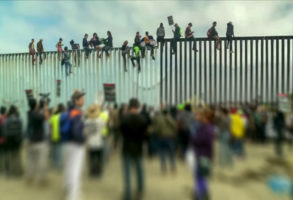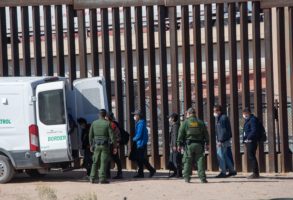
Published May 14, 2020
One of the chief selling points about Donald Trump in 2016, one that persuaded many initially dubious Republicans, was the argument that “he fights.” Some of us tried to counter that his battles nearly always concerned his own fragile ego, not the cause of conservatism, nor even the Republican Party, but these objections were swept aside. He was anointed the right’s champion, willing to do or say anything to get (back) at their enemies, or so they believed, and they were gratified.
Since January, we have witnessed a vivid lesson in the limits of fighting. There were ample reasons before now to recoil from Trump’s style of combat. It is so consistently cruel, witless, below-the-belt, and unhinged (e.g. his recent tweets implying that MSNBC host Joe Scarborough is guilty of murder), that it tainted by association any reasonable arguments that might be advanced for conservative ideas. But in his handling of the coronavirus pandemic, we’ve witnessed that even when a dire emergency calls for traits other than bellicosity, fighting is all he knows how to do. This is proving to be a catastrophe for the nation, and also for Trump’s own self-interest.
Who doubts that if, in January and February, when his intelligence briefers were warning of a public health disaster, Trump had adjusted his style just a bit, he would now be enjoying the kind of approval boost that other world leaders have banked? If, instead of minimizing the threat, trusting Xi Jinping to handle it, and lashing out at Democrats for exaggerating the danger to harm him politically, he had attempted just a simulacrum of traditional leadership, he might now be coasting to reelection rather than bleeding support.
Disasters are opportunities as well as challenges, and while no president welcomes calamity on his watch, most recognize the chance to burnish their standing. Bill Clinton lamented, after his two terms were complete, that he never faced a major crisis. He was apparently regretting that the peace and prosperity the nation enjoyed during his tenure denied him the chance to be considered a great president, since only wartime presidents seem to make it into the first tier in historians’ rankings.
Confronting intelligence about an imminent world health crisis, Trump could have convened a special session of Congress (before lockdowns). With the unmatched optics of a joint session, he could have announced travel restrictions, requested a huge investment in testing, contact tracing, and supported isolation, and recommended the temporary relaxation of regulations to speed treatments and streamline supply chains. He could have called upon Speaker Pelosi and Majority Leader McConnell to chair a task force to coordinate the production and distribution of testing and other medical supplies nationwide. If he were truly rising above his instincts and were able to utter a few unifying words, there is no telling how different things might feel now. He might have said:
We have deep disagreements in this country. There are bitter feelings between the parties. But this is not a time for grievances. We are facing a crisis. It will hit all of us in different ways, some more grievously than others. It will require courage and sacrifice and patience. It will call upon Americans’ volunteer spirit and generosity. I wish I could say it will be easy, but that just isn’t true. This is a new threat and we have much to learn. But one thing is certain: We will face this not as Democrats or Republicans, but as Americans. American creativity, innovation, and flexibility have permitted us to meet great challenges before. This time is no different. If we unite, nothing will stop us.
In addition to enhancing Trump’s leadership credibility, such an approach would have buoyed national morale and set us on a path to control the outbreak. But this president can’t choose comity even when it is blazingly obvious that nothing would better serve his own interests. He fights not because he’s anyone’s knight in shining armor; he fights because it’s the only mode he knows.
Since the disease began spreading, Trump has failed to develop a plan of action. He has punted responsibility to governors, while claiming complete power for himself. He has lied and dithered and hawked quack cures. He has created confusion by forcing government agencies to waste time dealing with his callow son-in-law on a matter of urgent national concern. But above all, he searched for someone to punch.
While the situation cried out for competent coordination and planning, for calm briefings with experts, he looked only for foils. He fought with Democrats, exclaiming on February 28 that “this is their new hoax.” He tangled with insufficiently “grateful” governors who asked for supplies. “I say . . . don’t call the governor of Washington. Don’t call the woman from Michigan.” He disparaged frontline medical professionals, wondering on March 29 whether they were stealing masks (“Are they going out the back door?”). He had a spat with congressional leadership in late February when they proposed an initial coronavirus package more than three times the size of Trump’s request (“Pelosi’s incompetent.” He’s “Cryin’ Chuck Schumer”). He reversed his previous gushing praise and began to blame China for the virus, encouraging the use of nicknames like “Wuhan virus.” He picked a fight with the Postal Service, poured out tweetstorms about his predecessor, whom he accused of dark crimes, and above all, from before dawn till after dark every single day, he battled the press.
The death toll mounts. The economic damage is unprecedented.
Yes, he fights – and we all lose.
Mona Charen is a nationally syndicated columnist, a senior fellow at the Ethics and Public Policy Center, a contributor to The Bulwark, and host of The Bulwark’s Beg to Differ podcast.








